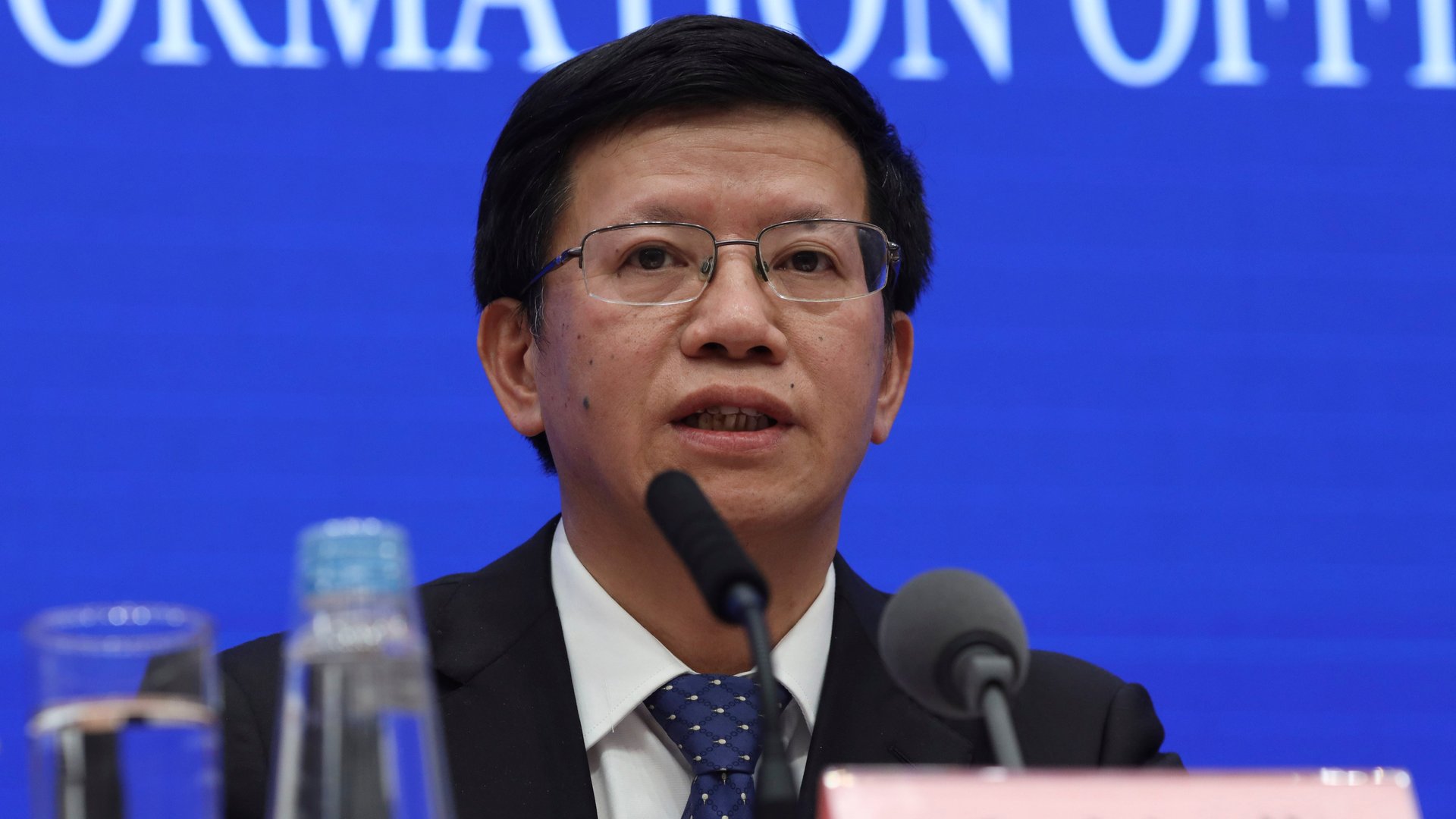The Chinese are noticeably absent from an important global space conference
Attendees hoping to hear from the world’s busiest space power were disappointed after a Chinese space official didn’t show at the International Astronautical Congress (IAC), a 70-year-old space conference.


Attendees hoping to hear from the world’s busiest space power were disappointed after a Chinese space official didn’t show at the International Astronautical Congress (IAC), a 70-year-old space conference.
In 2018, China launched more missions to orbit than any other nation, and it looks likely to do so again in 2019. But at a discussion between the heads of the world’s leading space agencies, Wu Yanhua, the vice chairman of the China National Space Administration (CNSA), was not present.
“I miss an important space agency in this panel. Where is China?” read the most popular crowd-sourced question displayed in enormous type above the assembled space dignitaries.
Pascale Ehrenfreund, the head of the German space agency, blamed Yanhua’s absence on a scheduling conflict. That’s difficult to believe, given that the annual conference is planned years in advance. Later, Jan Woerner, the head of the European Space Agency, told Quartz that he believed Yanhua was unable to obtain a visa to enter the United States.
“It’s not nice for me, because I’m always looking forward to interactions with all states worldwide, so I’m sad that they are not here,” he said.
A spokesperson for the International Astronautical Federation (IAF), which organizes the conference, said that Yanhua had notified them that he would not be able to attend several days before the conference. At a press briefing held before the opening day, no mention was made of Yanhua’s absence—though organizers said they spent 18 months working to obtain visas for Chinese and Russian nationals. Chinese officials have attended other IAC events recently in Germany, Australia and Mexico.
The US State Department did not respond to e-mailed questions about the visas, nor did the CNSA.
Sergey Krikalev, the director of human spaceflight at Roscosmos, Russia’s space agency, frowned and said it was a pity that an official Chinese representative wasn’t on hand. But he said that he would be meeting with Chinese officials next week and that space cooperation between the countries is ongoing. Krikalev’s boss, Roscomos chief Dmitry Rogozin, is now forbidden from entering the US due to sanctions imposed following Russia’s seizure of Crimea in 2014.
Despite testy geopolitical feuds, the US and Russia have maintained admirable cooperation while operating the International Space Station alongside 13 other nations. But US space officials are forbidden by law from bilateral cooperation with their Chinese counterparts. NASA administrator Jim Bridenstine said “that problem is above my pay grade.”
China’s space ambitions—including a crewed habitat in low-Earth orbit and lunar exploration—have figured as a bogeyman in the Trump administration’s domestic space rhetoric. And US national security officials believe there is an organized effort by China to steal high-tech US space hardware.
This morning, vice president Mike Pence pointedly noted that space cooperation would be aimed only at “freedom-loving nations.” Bridenstine was asked if that represented a change in US policy, which has often had to set space aside as a place its willing to cooperate with terrestrial rivals.
“When we think about the future, we do need to be careful about things like the theft of intellectual property,” Bridenstine said, referencing a sore spot in ongoing trade tensions between the US and China. “We need to be careful about how we go about bringing new partners in that ultimately could be more harmful than helpful in future. That’s probably what the vice president was referencing in his speech today.”
The IAF spokesperson said that lower-ranking CNSA officials were attending the conference and engaging with their international colleagues, though none could be found at press time and China did not host a booth in the exhibition hall. China HEAD Aerospace Technology Co., a Chinese-European space firm, was assigned a space in the hall, but the location was empty.
All in all, China’s absence proved a major disappointment.
“Meetings where we have been here physically in person have been key to international collaboration,” Sylvain Laporte, the head of the Canadian Space Agency, said during the space agency leaders panel.